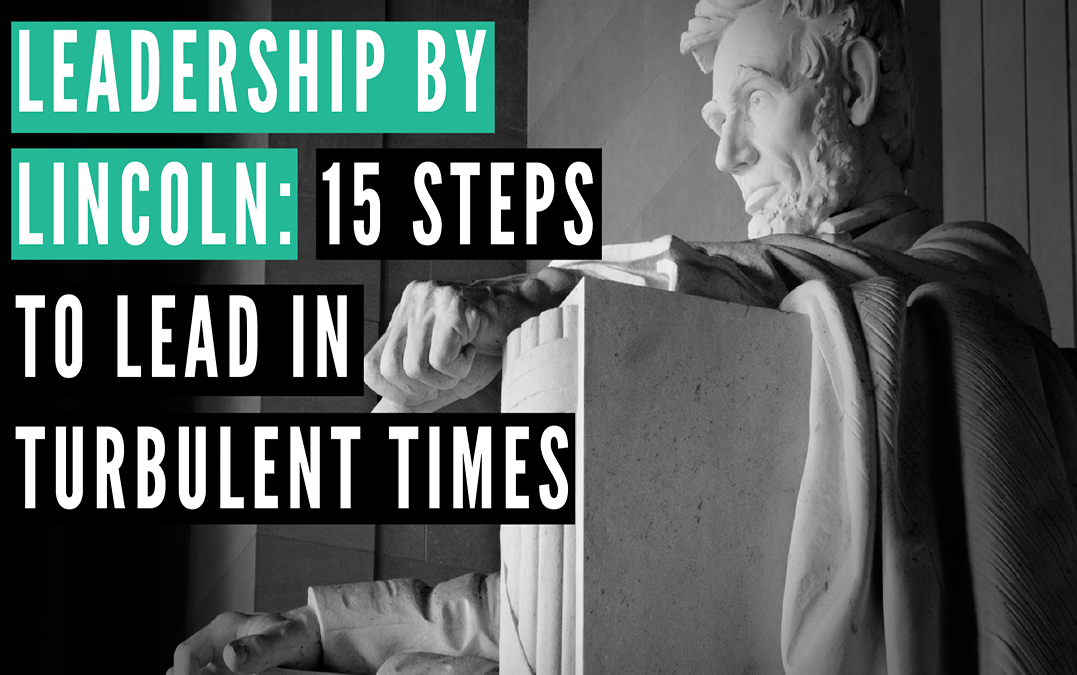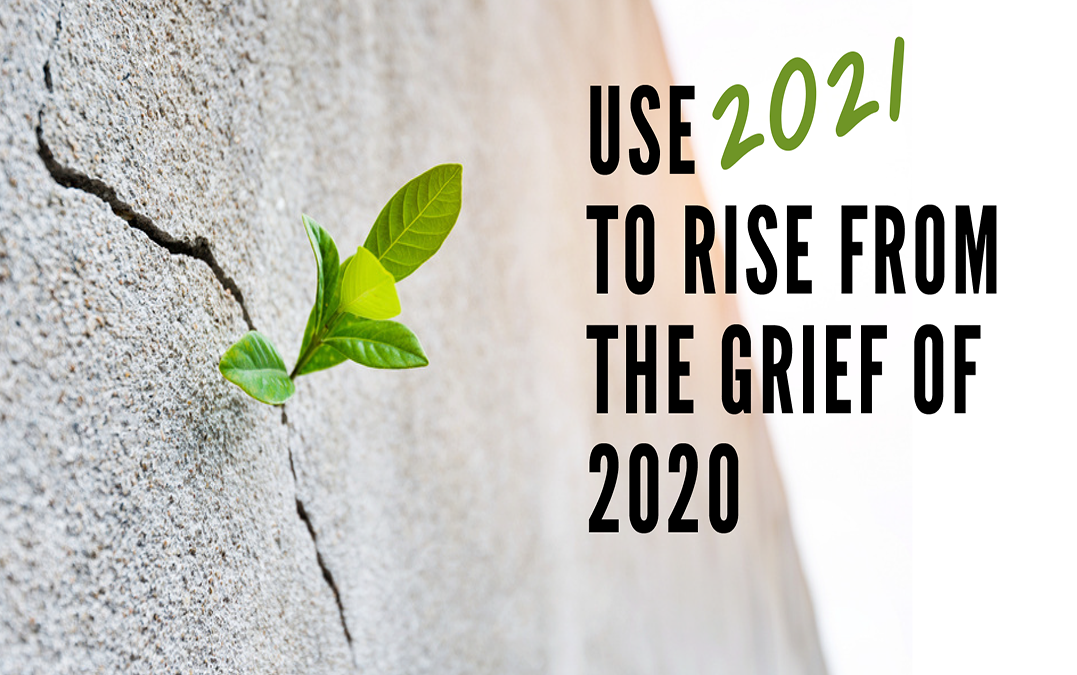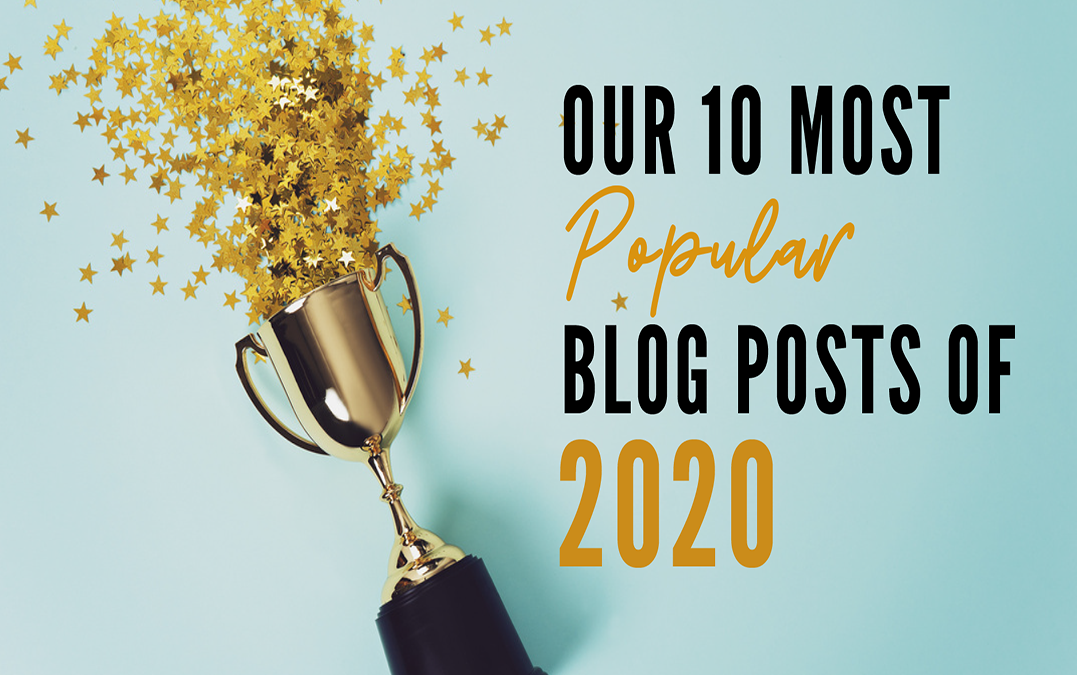
Leadership
It’s been nearly eight months since George Floyd called out for his mother as his life was callously drained away by a white police officer in broad daylight on a Minneapolis street. Mr. Floyd’s death ignited a powder keg in America that spread around the world. Images of his murder, followed by buildings in flames, followed by national guard troops positioned on the steps of the Lincoln Memorial show the worst of what can happen when we lack the kind of leadership that helps us navigate the path between chaos and control.
Before sitting down to write this dispatch, I picked up my copy of Leadership in Turbulent Times, to find inspiration and historical perspective. In the book, author Doris Kearns Goodwin profiles Presidents Abraham Lincoln, Theodore Roosevelt, Franklin Roosevelt, and Lyndon Johnson.
Goodwin compared and contrasted the four presidents, and noted how their lives were marked by crucibles that shaped their leadership style. This time, I opened the book to Chapter 9, Transformational Leadership. The chapter opens on March 4, 1861, the first day Abraham Lincoln took office.
Goodwin writes, “the house was not merely divided; the house was on fire. Seven southern states had passed resolutions to secede from the Union in the four months between Lincoln’s election and his inauguration.”
It was against this backdrop that Lincoln helped the nation navigate the path between chaos and control. “His temperament was stamped with melancholy,” Goodwin writes, “but devoid of pessimism and brightened by wit.”
Here are 15 steps that Lincoln took to lead our divided country:
1. Acknowledge when failed policies demand a change in direction
2. Gather firsthand information, ask questions
3. Find time and space in which to think
4. Exhaust all possibility of compromise before imposing unilateral executive power
5. Anticipate contending viewpoints
6. Assume full responsibility for a pivotal decision
7. Understand the emotional needs of each member of the team
8. Refuse to let past resentments fester; transcend personal vendettas
9. Set a standard of mutual respect and dignity; control anger
10. Shield colleagues from blame
11. Maintain perspective in the face of both accolades and abuse
12. Find ways to cope with pressure, maintain balance, replenish energy
13. Keep your word
14. Know when to hold back, when to move forward
15. Combine transactional and transformational leadership
My temperament since the death of George Floyd, too, has been marked by melancholy. But, I find inspiration anew each day as I see people at all levels in our society guiding the way through leadership that seeks to unify.
Question: Which of these 15 leadership skills from Lincoln’s playbook can you use today?
Driven by the premise that excellence is the result of aligning people, purpose and performance, Center for Executive Excellence facilitates training in leading self, leading teams and leading organizations. To learn more, subscribe to receive CEE News!

Diversity, Equity, Inclusion, Leadership
On Bloody Sunday, John Lewis wore a backpack. In it, he carried fruit, a toothbrush, and two books. Lewis had expected to spend the night reading in jail. Instead, he spent it in the hospital after his skull was fractured from a police beating. He would carry the scars from that beating at age 25 for the rest of his life. He’d also carry out the rest of his life guided by the principles in the two books in his backpack that Sunday, March 7, 1965.
One book was The American Political Tradition, a reappraisal of this history of the United States written by Richard Hofstadter in 1948. The other book, also first published in 1948, was The Seven Storey Mountain, the autobiography of Catholic monk Thomas Merton and his journey to a life in Christ. It was Christ’s instruction to love thy neighbor that drew Lewis to Martin Luther King’s nonviolent message which they used to speak up against racial injustice in America.
How does a young man find the courage to sit before open hatred at lunch counters and face police lines protected only by an ideal? In a word – love. The monk, Thomas Merton wrote,
Our job is to love others without stopping to inquire whether or not they are worthy. That is not our business and, in fact, it is nobody’s business. What we are asked to do is to love, and this love itself will render both ourselves and our neighbors worthy.
John Lewis left a legacy of love. Not a pollyannaish love, but a durable, tempered conviction that a belief in common humanity and the pursuit of equality will win in the end. “If we get it right here, in America, maybe, just maybe we can be the model for the rest of the world,” Lewis often said.
It’s hard not to judge others in America’s recent history triple underscored by racial, social, and political division. But doing so is what makes love so powerful. Its value increased every time leaders like John Lewis endured physical blows and sacrifice in the name of equality. Lewis believed that America was worth the pain and sacrifice.
Lewis’ love filled him with irrepressible happiness despite all that he’d been through. His life is a monument to love. Now that his journey is over, his life is testimony to the power of love that speaks to us all. The political book in that backpack starts with a quote from the writer John Dos Passos:
In times of change and danger when there is a quicksand of fear under man’s reasoning, a sense of continuity with generations gone before can stretch like a lifeline across the scary present.
John Robert Lewis was that lifeline. His body was put to rest, but his legacy of showing up, speaking out, and moving forward until, as Lewis said, “the revolution of 1776 is complete,” must carry on.
“If not us, then who? If not now, then when?” – John Lewis
Question: How can you use your platform to complete the revolution of 1776?
Driven by the premise that excellence is the result of aligning people, purpose and performance, Center for Executive Excellence facilitates training in leading self, leading teams and leading organizations. To learn more, subscribe to receive CEE News!

Leadership
How did your leadership team handle 2020? Did they cope with the COVID-19 crisis with agility? Did they prioritize your organization’s diversity, equity, and inclusion strategy? Were they empathetic with the WFH challenges faced by their team members? Since 2006, TED has provided accessible content on topics that can help leaders address current challenges. Here are six TED Talks and interviews from 2020 worth sharing and discussing with your leadership team this year.
1. How symbols and brands shape our humanity byDebbie Millman
Here’s an excerpt: The discipline of branding has transformed more in the last 10 years than it has in the last 10,000. For the first time in modern history, the most popular, influential brands are not brands being pushed down by the corporation. They are brands being pushed up by the people, for the people, for the sole purpose of changing the world and making it a better place. Our greatest innovations aren’t brands providing a different form or a different flavor of our favorite snack. Our greatest innovations are the creation of brands that can make a difference in our lives and reflect the kind of world that we want to live in.
2. It’s OK to feel overwhelmed. Here’s what to do next by Elizabeth Gilbert
Here’s an excerpt: I think sometimes our emotions about our emotions become a bigger problem, so if you’re feeling frightened and anxious, and then you’re layering shame on top of that because you feel like you should be handling it better, or you should be doing your isolation better, or you should be creating more while you’re alone, or you should be serving the world in some better way, now you’ve just multiplied the suffering, right? So I think that the antidote for that, first of all, is just a really warm, loving dose of compassion and mercy towards yourself, because if you’re in anxiety, you’re a person who is suffering right now, and that deserves a show of mercy.
3. How to foster true diversity and inclusion at work (and in your community) by Rosalind G. Brewer
What it’s about: I think we have spent more time trying to reach numbers than we have changing our environment. People want to feel safe, feel they can come to work and be their whole be their whole self, and give it everything they’ve got. They want their differences to be recognized and appreciated for the value that they can add to the conversation and, ultimately, the bottom line. So I think there’s so much opportunity in the inclusion space, because we focus too much on meeting metrics.
4. To save the climate, we have to reimagine capitalism by Rebecca Henderson
What it’s about: “Business is screwed if we don’t fix climate change,” says economist Rebecca Henderson. In this bold talk, Henderson describes how unchecked capitalism destabilizes the environment and harms human health — and makes the case for companies to step up and help fix the climate crisis they’re causing. Hear what a reimagined capitalism, in which companies pay for the climate damage they cause, could look like.
5. How reverse mentorship can create better leaders by Patrice Gordon
What it’s about: Employee diversity and inclusive leadership are goals for most organizations today, but how do we get there? Try a “reverse mentorship” program, which sets up junior team members to guide senior staff. Here are 6 tips to make reverse mentorship work, from executive coach and personal development advocate Patrice Gordon.
6. Why rumors about vaccines spread and how to rebuild trust by Heidi Larson
What it’s about: Anthropologist Heidi Larson explores how medical rumors originate, spread and fuel resistance to vaccines worldwide. While vaccines cannot escape the “political and social turbulence” that surrounds them, she says, the first step to stopping the spread of disease is to talk to people, listen and build trust.
Bottom line. To lead effectively today, you need to constantly test your assumptions and recalibrate outdated thinking. Help your leadership team build a library of resources that challenge perceptions and build new leadership models to meet the challenges of the 21st century.
Question: What resources do you use to stimulate new ideas with your leadership team?
Driven by the premise that excellence is the result of aligning people, purpose and performance, Center for Executive Excellence facilitates training in leading self, leading teams and leading organizations. To learn more, subscribe to receive CEE News!

Leadership
Early last year, a colleague sent me an article from the Harvard Business Review entitled, That Discomfort You’re Feeling is Grief. The article was published on March 23, 2020. That was just 5 days after Governor Gavin Newsom issued America’s first mandatory order for Californians to shelter in place due to the growing COVID-19 pandemic that had claimed just under 10,000 lives in the U.S.
Two months after the article was published, George Floyd was murdered on the streets of Minneapolis sparking protests and violent clashes between demonstrators and law enforcement troops around the world. Four months after the article was published, towering civil rights era leader, John Lewis, lost his battle with pancreatic cancer, followed the next month by the shocking announcement of Chadwick Boseman’s death from colon cancer, followed weeks later by the loss of beloved Supreme Court Justice Ruth Bader Ginsburg.
The collective grief in the air in March of 2020 was from the loss of normalcy, the fear of economic toll, the loss of connection, and uncertainty about the future. Little did we realize that the grief we were experiencing in March was like the vacuum effect on the shore that precedes a tsunami. We rushed to witness it in person not realizing that it was a prelude to a massive wave train that would chase us relentlessly through the remainder of 2020.
It is now January 2021, and I’m cautiously optimistic that the year will be marked less by shock and awe and more by steady advances in reclaiming normalcy. Instead of jumping headlong into resolutions and vision boards, I’ve been talking to my team about the need to address the collective duress that 2020 put us through. Whether you were a school principal who fought off threats from parents on both sides of the “to open, or not to open” debate, a manager who lost a team member in 2020, or a working parent cum distance learning aide, this is the perfect time to name and claim that 2020 was a sh*tstorm.
Boxing up our cumulative grief would be unhealthy. So, we’re building time in our January Re:Imagine Leadership Summit to name and claim what we grieved in 2020 and to own what we’ve signed up for 2021 without knowing the terms and conditions. I’ll be detailing the agenda for the January Summit in a LinkedIn post next week. Until then, give yourself permission to acknowledge what you’ve been through before plowing headlong into the unknown of 2021.
Question: How do you plan to reclaim some normalcy in 2021?
Driven by the premise that excellence is the result of aligning people, purpose and performance, Center for Executive Excellence facilitates training in leading self, leading teams and leading organizations. To learn more, subscribe to receive CEE News!

Leadership
It’s been an unprecedented year marked by uncertainty and disruption. Let’s face it, many of us cannot wait for 2020 to be over. But before we dive into 2021, we took a look back at which of this year’s posts got the most buzz. Some of our most popular posts were book lists, whether you were interested in upping your leadership game or deepening your understanding of racism and inequity in America. Other popular posts dealt with how to lead yourself and your team through the COVID-19 pandemic.
Regardless of the nature of each post, we tried to find a lesson or two that you could take away in 750 words or less. Something you could apply in your office (virtual or in-person) that day, or that might sharpen your skills as a leader.
Here are the top ten posts we shared to serve that purpose:
10. 15 Steps Lincoln Took to Lead a Divided Country
It’s been just over two weeks since George Floyd called out for his mother as his life was callously drained away by a white police officer in broad daylight on a Minneapolis street. Mr. Floyd’s death ignited a powder keg in America that spread around the world. Images of his murder, followed by buildings in flames, followed by national guard troops positioned on the steps of the Lincoln Memorial showed the worst of what can happen when we lack the kind of leadership that helps us navigate the path between chaos and control. [Read more]
.
.
9. 6 Books to Read During this Era of Isolation
You know the expression found money? When you put on a jacket that you haven’t worn in a while and find a $20 bill in the pocket? There is such a thing as found time too. Millions of people now have extra time on their hands during this era of isolation. You can choose to spend yours toggling between 24-hour “Breaking News” reports, or taking advantage of the opportunity to read a good book. We’ve gathered six titles for perspective on leading through a crisis, and beautifully written prose that is once both personal and profound. Spend this found time wisely to help you fend off a mindset of isolation and focus on a good read. [Read more]
.
.
8. 3 Things You Should Be Doing Right Now to Lead Your Team Through This Crisis
You’re probably getting flooded with free advice right now. You suddenly have access to everything from ways to indulge yourself without breaking the budget, to virtual art and culture exhibits to unlimited, free training and development during the coronavirus. The options for what to do during this unprecedented time in history can be overwhelming. If you’re facing a deluge of distractions right now, chances are that your team members are too. Now, more than ever, it’s critical that you lean in and take some basic steps as a leader to keep your team focused and productive. [Read more]
.
.
7. Servant Leadership: 50 Years After Greenleaf Penned the Essay
The year 2020 marks the 50th anniversary of the origins of servant leadership. Robert K. Greenleaf was a mid-20th century iconoclast who argued that leaders should use their positions of power to help their teams succeed rather than for self-interest and personal glory. It’s a powerful concept that has been put to the test by many organizations, including Southwest Airlines and WD-40. [Read more]
.
.
6. 5 Resources To Help You Develop A More Diverse and Inclusive Workplace
No matter who we are or where we come from, our assumptions and beliefs are shaped by our experiences, our upbringing, our race, our gender, religion, and culture. Those beliefs help us navigate and make sense of everyday life. But they can also mean that we believe that there is no difference between our perceptions and reality. For leaders, that means we must continuously question our assumptions and value the voices of people who are not like us to help us assess reality correctly. [Read more]
.
.
5. 10 Ways to Improve Your Conversation Skills When You Disagree
Unfriend anyone on Facebook lately? Avoiding someone because you’re afraid that the subject of politics, religion, or even the weather will come up? In a world that is growing more polarized by the day, there may be no more important skill than being able to hold a meaningful conversation with another human being. In order to free yourself from filter bubbles, radio host and TEDx speaker Celeste Headlee suggests ten ways to improve your conversation skills. [Read more]
.
.
4. 6 TED Talks from 2019 to Share with Your Leadership Team
It’s time to decide how you want to lead your organization in 2020. How did your leadership team impact organizational culture, and, ultimately, performance, in 2019? Were they too busy focusing on daily demands to read case studies and dig through reports about the latest leadership topics? Since 2006, TED Talks have provided accessible content on topics that stimulate new ideas about unexplored topics. [Read more]
.
.
3. 7 of the Best Leadership Books to Add to Your Wish List this Holiday Season
In a year marked by disruption and uncertainty, this holiday season is the perfect time to read and reflect. We’ve selected a list of seven titles – from nature to biographies, from history to current events and re-imagining capitalism itself – these works are original, enjoyable, and provocative. [Read more]
.
.
2. 8 Books that Deepen Our Understanding of Race and Racism in America
This year has given Americans the opportunity to face some ugly truths about our country. The torch that was lit when George Floyd was murdered on Memorial Day continues to burn day and night. Under that light, American citizens are daring to step out of the protection of their houses and step into the public square to debate issues such as freedom, patriotism, policing, and racism. [Read more]
.
.
1. Meet 5 Graduates of an Elite Program for Transitioning Special Ops Team Members
For the past five years, I’ve had the privilege of serving as a pro bono coach for a San Diego-based nonprofit called The Honor Foundation. The program offers a 120-hour, MBA-style curricula that serves as a bridge for members of the Special Operations forces of the military to transition from service and discover what’s next on their career path. Thanks to The Honor Foundation, these men and women have the tools they need to confidently enter the workforce with pride and a sure footing. They are prepared to take the leap of faith that the civilian world will honor their service, embrace their elite training, and place them in positions worthy of their talents. [Read more]
Question: What thought leaders did you follow most in 2020? Did you learn anything that helped you become a better leader?
Driven by the premise that excellence is the result of aligning people, purpose and performance, Center for Executive Excellence facilitates training in leading self, leading teams and leading organizations. To learn more, subscribe to receive CEE News!

Leadership
I learned so much this year. As much as I desperately want 2020 to be over – and as much as I know that the restrictions of living and working during a pandemic will not miraculously disappear in 2021 – I truly value the new skills, insights, and relationships that I built this year. Capturing some of those here feels like the best use of this treasured space:
Lesson #1 – Even though it’s happening to you at the same time it’s happening to your team, you’re still the leader.
I remember the weekend after our governor declared a stay at home order in late March. While my family wrestled with what stay-at-home would look like and my weekend grocery shopping trip looked like a scene from a post-apocalyptic movie, I realized on Sunday night that my team needed to hear from me first thing Monday morning. I sent an email at 7:20 a.m. that started, “In light of the escalating news about the spread of the coronavirus, I wanted to take a minute at the start of the week to let you know that your health and safety are my first priority…”
Lesson #2 – Let go of perfectionism and pivot through the plot twists.
When my team sat down to discuss our responsibility for helping our clients and readers navigate the late spring and summer of 2020, we decided to provide free content in the form of Zoom leadership webinars and virtual panel discussions. We’d built a reputation for delivering seamless, hiccup-free, in-person content, but shifting to content that depended on technology that we didn’t have 100% control over was a leap into the abyss of vulnerability. We quickly learned that audio will not always line up with video, dogs will bark, and plot twists that we could not plan for would surely happen. We relaxed our pursuit of perfectionism and focused on delivering quality content that mattered – dogs and all.
Lesson #3 – Shift our paradigm from “When will these changes end so that we can go back to normal?” to “How can we stay perpetually curious and innovate to help our clients thrive in the 4th Industrial Revolution?”
Resistance to change runs deep. Our brains are hardwired for predictability and our organizations are designed for efficiency. But, the clients that have reached out to us for help are reckoning with the fact that the best laid plans quickly fade in a world of global pandemics and cyber attacks. The logical systems that they’ve relied on to plan and execute strategy took a gut punch in 2020. Our job now is to help our clients recognize that the Fourth Industrial Revolution is well underway and that their existence depends on not waiting for things to return to normal, but to thrive in a world that requires perpetual curiosity and innovation.
2020 also helped me learn: 1) a LOT of new recipes, 2) that dogs can develop a nasty limp if you take them walking for 30 miles a week; and 3) that I can form strong relationships with entirely new people by being physically distanced, but socially connected.
Driven by the premise that excellence is the result of aligning people, purpose and performance, Center for Executive Excellence facilitates training in leading self, leading teams and leading organizations. To learn more, subscribe to receive CEE News!






















